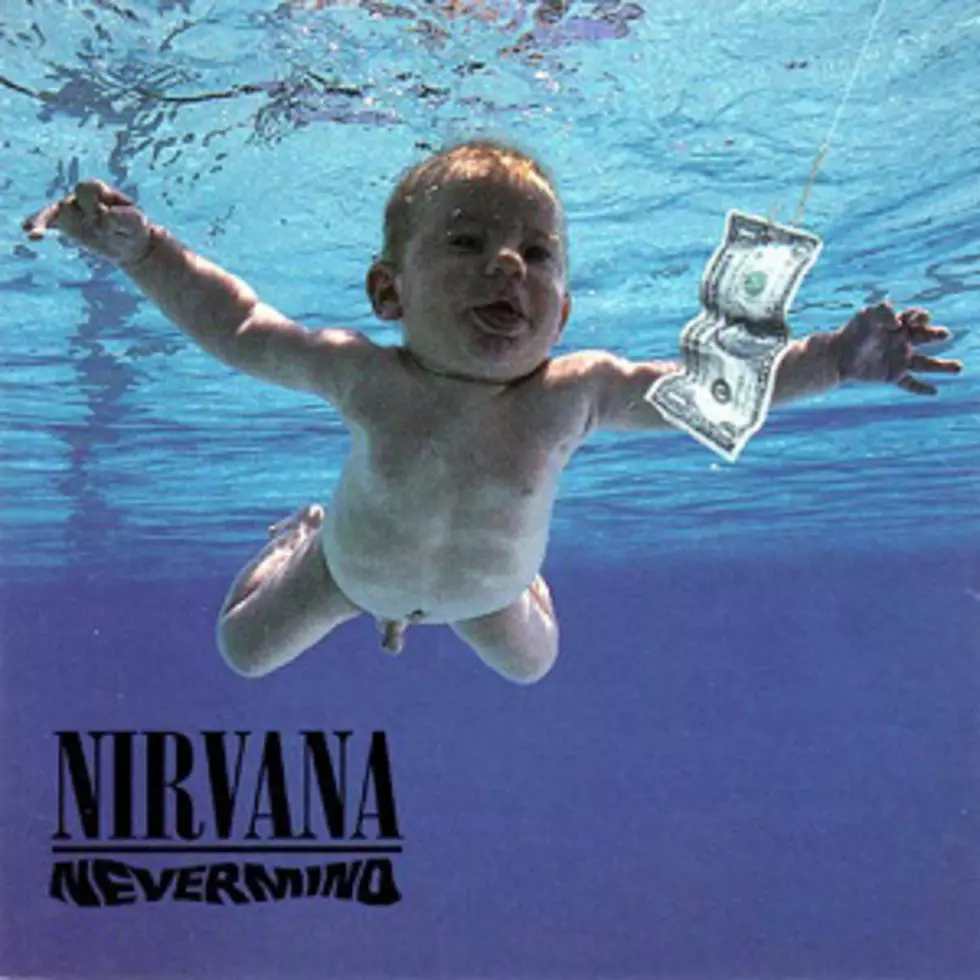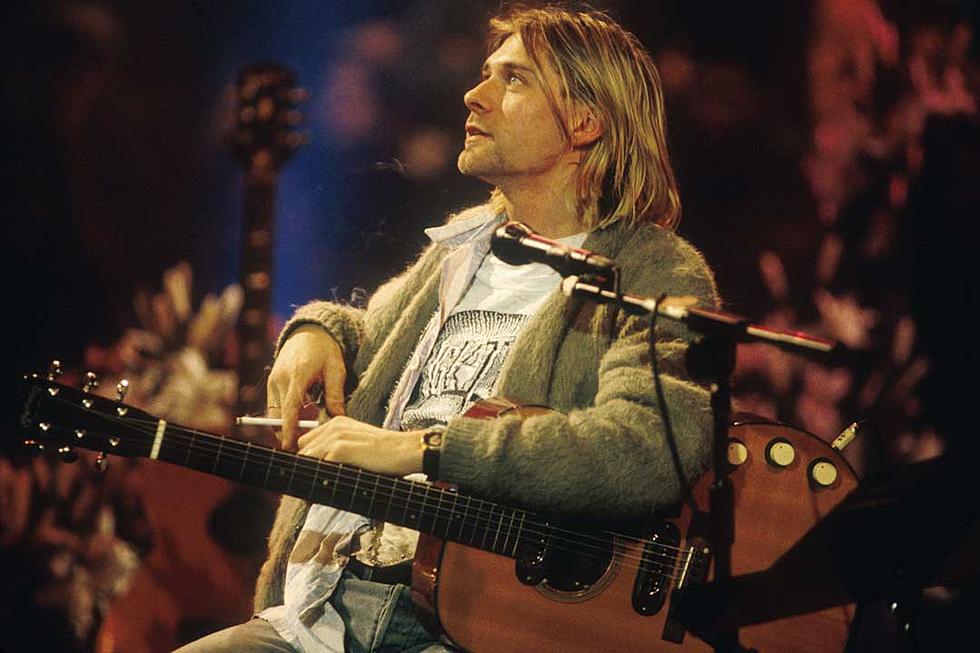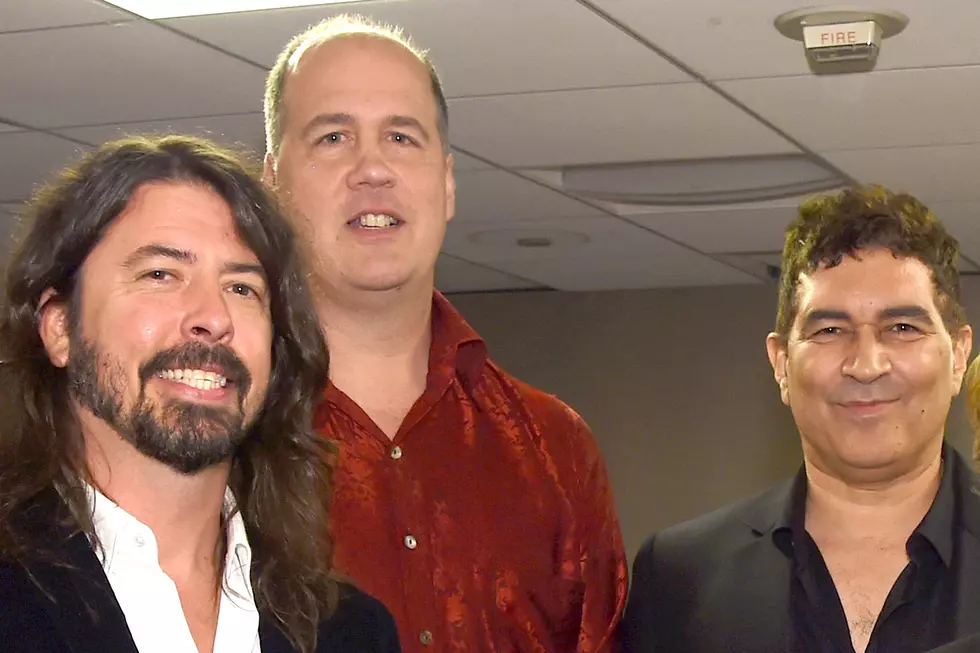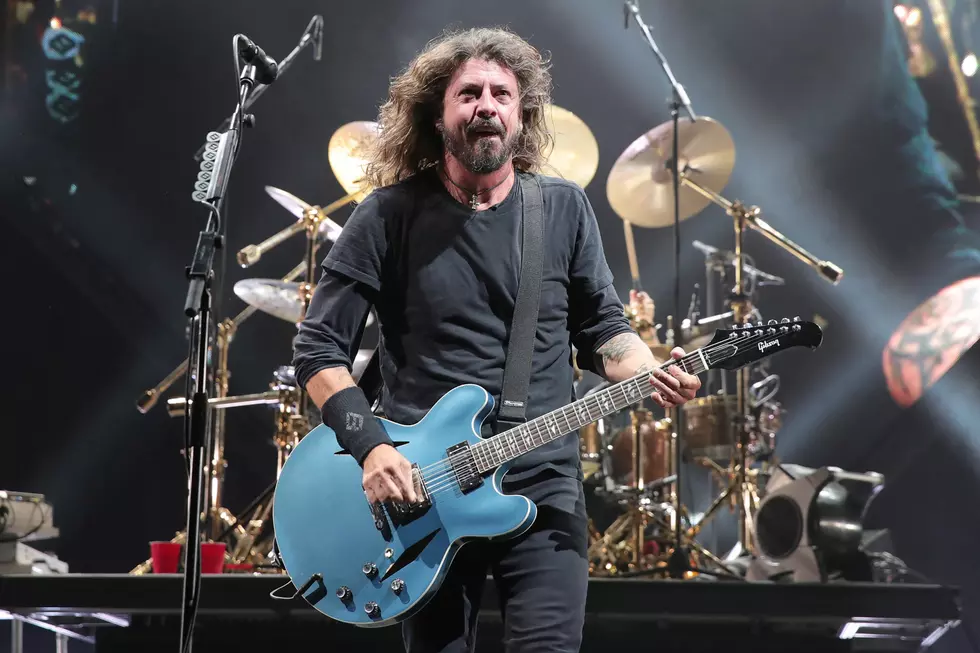
24 Years Ago: Nirvana Turned ‘Alternative’ Into the Mainstream With ‘Nevermind’
What do you get for the 24-year-old album that has everything?
In terms of critical analysis, Nirvana's Nevermind is the Sgt. Pepper of the grunge world. Just here at Diffuser, we've pointed you to unreleased tracks, covered tribute albums, and shared musicians' takes on Nirvana's influence. We've even covered the cover from all angles – from the photo shoot to the baby in the picture.
"Sgt. Pepper of the grunge world" is true not only of the ongoing adulation enjoyed by the album but also of its influence. As with the Beatles' masterpiece, there was music before Nevermind and after – or more precisely: popular music. You've heard that before, but it's true. The Beatles didn't invent psychedelia or the concept album and Nirvana didn't invent grunge. What the two bands' best known albums have in common is that they are mileposts for significant changes, both musically and culturally.
We look back on the '80s as something of an alternative music heyday. But having lived it, I can testify for the prosecution that we're Monday morning quarterbacking when we do so. Without a doubt, there were some brilliant albums released during the decade. Who's going to argue with the Replacements, Husker Du and R.E.M.? But unless you were lucky enough to live in a big city with an independent record store, most of what we now consider classic '80s records simply went undiscovered when they were originally released.
The "college radio" records that made their way out to the provinces were on indies that had major label distribution. I.R.S. had deals with A&M and MCA, which also had a deal with SST; Slash was distributed by Warner Brothers. If you were growing up in a sleepy little town like Boiling Springs, S.C., something like Ian MacKaye's Dischord label may as well have not even existed.
Instead, out in the boonies, we had mall record stores stocked with major label offerings. We cobbled together record collections from anything that looked to be even slightly off the beaten path. It wasn't easy. Mall record stores were packed with Huey Lewis, Madonna, Phil Collins and Lionel Richie. And it wasn't even just mall record stores, either. Suburbia was entirely mall culture – filled with parachute pants and Member's Only jackets, mullets lurking beneath painter caps. Shopping at thrift stores was social suicide. It was all about fitting in, but some of us just didn't -- or didn't want to.
If 'Sgt. Pepper' brought psychedelia to middle America, 'Nevermind' spread the gospel of DIY.
This was the world for which we were seeking alternatives, and we found them wherever we could. Some of us escaped to local scenes or art schools. A lot of us moved to bigger cities or college towns looking for like-minded individuals. Dave Grohl made his way from small-town Virginia to D.C. and then Seattle; Krist Novoselic and Kurt Cobain left Aberdeen, Wash. for Seattle. There they found a local scene of DIY records, thrift shop clothes and instruments – and bands that nobody outside of the Pacific Northwest cared about. It was home sweet home for kids escaping mall culture.
I'm the same age as those guys, and I was making my own escape at the same time. I left the small town south for Hollywood, settling in a cruddy apartment just off the famous Sunset Strip. I arrived at the height of glam rock, with all of the teased hair and Spandex that implies. It wasn't all bad news, though. Los Angeles was filled with cool little record stores that sold indies and bootlegs, and there was a great alternative music scene. Imagine having Jane's Addiction and Red Hot Chili Peppers as your local bands. That's the Hollywood I lived in.
On the major label side, though, things got worse as the '80s rolled on. This is the era of "Cherry Pie" and Michael Bolton, after all, and the rise of teen pop idols like Debbie Gibson and Tiffany. Every song seemed like it was about partying with a 17 year-old girl until you could feel the heat coming off the street. The worse major label music grew, the harder we clung to music outside of the mainstream. The term "alternative" wasn't in use yet as a genre label, but that's what we're talking about here -- alternatives to the mainstream, alternatives to teased hair and bullet belts.
By 1990, I was beyond jaded. Any band with a buzz around them was immediately suspect. L.A. is an industry town, so if the hype machine insisted that a group was good, that meant just another major label hustle. Remember Little Caesar? They were pushed hard in L.A. as the next big thing, for example.
One evening, I met a friend at Bob's Frolic Room – a cruddy little bar on Hollywood Boulevard with a lot of great neon and some Black Sabbath on the jukebox. "Do you want to go check out Nirvana at the Palace tonight? They're supposed to be, like, amazing" she said. I had no idea who they were, but if they were the next big thing, I didn't want to have anything to do with them. I'd learned my Little Caesar lesson. That night, I passed up a free ticket to see Nirvana play to around 500 people.
The next year, they broke in all of their major label glory like bands used to once upon a time: through heavy rotation on MTV. It was like a coronation for everything the non-mall lifestyle among us had been living for the last several years: pawn shop guitars, shabby clothes and a general sense of rejection of the "look pretty go party" vibe of our peers.
Within months, the Strip was transformed; the spandex replaced by Doc Martens and flannels. The major labels jettisoned their glam bands as if they were dead weight on a sinking ship, and picked up "alternative" bands (and indie labels) just as quickly. It was like alternative music Oprah: "You get a deal, and you get a deal and you get a deal!"
What followed was a little confusing for some of us. Suddenly, the most prominent music in popular culture was being called "alternative," a moniker that made no sense to those of us who escaped the treachery of the mall record stores. On the list of all-time best selling albums in the U.S., Nevermind rests between records from N'Sync and the Dixie Chicks. It's hard to be an alternative to the mainstream when you are the mainstream, the thinking went. There was no crime worse to the non-mall crowd than selling out, whatever that means. It's something that Cobain struggled with himself.
But at the same time, Nevermind's success validated so much artistically – aesthetically and politically. It's the moment that punk rock ethos went mainstream. If Sgt. Pepper brought psychedelia to middle America, Nevermind spread the gospel of DIY.
It's a great album with many great stories behind it, but the secret to the significance of Nevermind doesn't lie in its origin story, but in what it accomplished. To date, it remains the last album to transform the industry so dramatically. But don't lose hope. Right now, we're as far chronologically from Nirvana's masterpiece as we were from Sgt. Pepper when Nevermind was released. Maybe the next revolution is just around the corner.
Worst to First: Every Nirvana Album Ranked
More From Diffuser.fm









